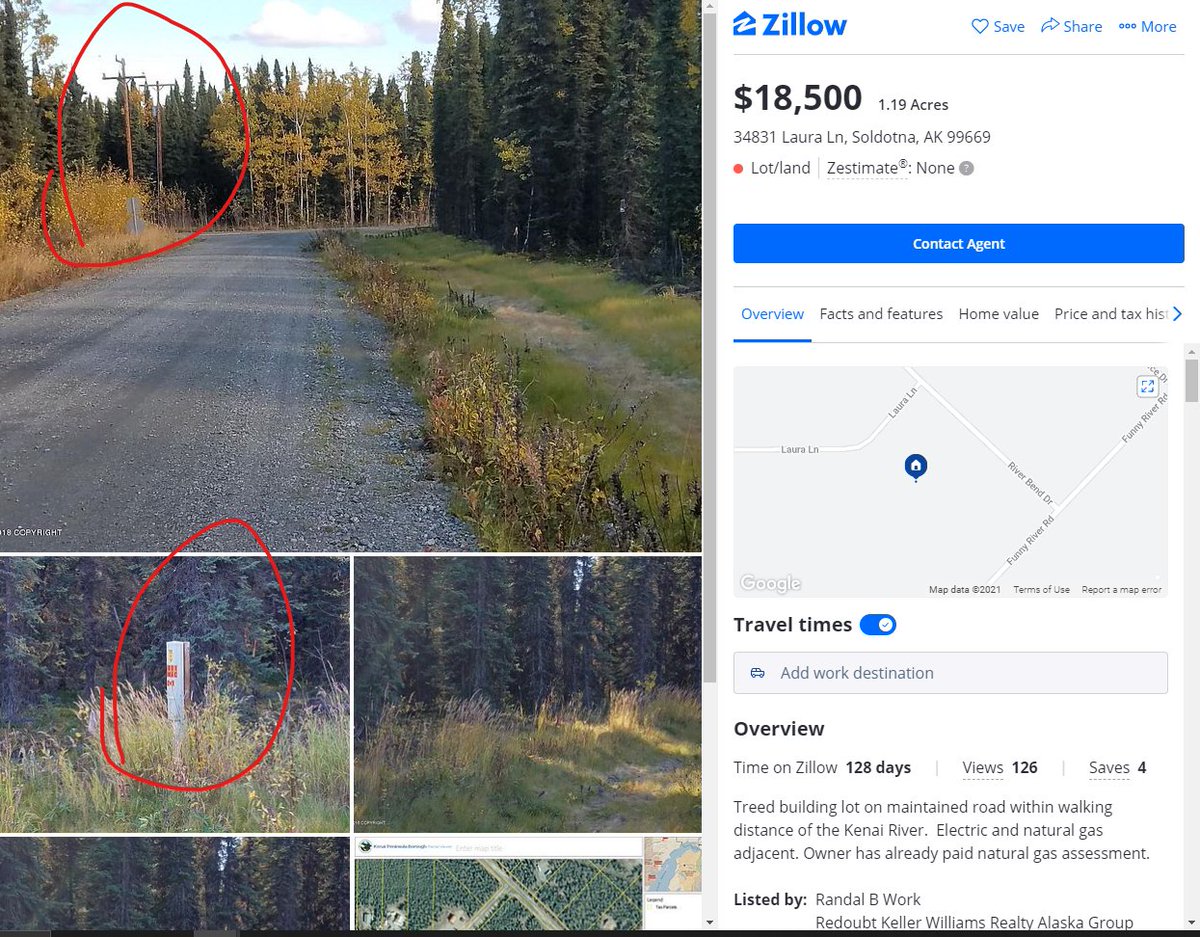How to effectively use Twitter for learning, networking, audience building, start a business, build a personal brand from scratch ?
A Thread 🧵👇
I will tell you that you can generate sales, build connections, job opportunities, best learning sources, personal brand, start your own business and bunch of other things you can think of, Twitter will help you.
- Open the app and clean all your following.
- Avoid negative people and politics.
- Skip Twitter's recommendations.
- Start consuming content of people you follow for the 1st 15 days.
Follow your office colleagues, writers or authors, entrepreneurs and people you admire the most.
If you’re just starting out, your goal should be to make a 30 Under 30 List people to follow.
Identify your niche i.e., on which topics you want to write and start tweeting according to it. For example, Fincademy, writes about personal finance, stock market investing.
- After first 15 days, start replying, retweet with comments, share your thoughts, post quotes or lines you liked the most.
- Avoid excessively retweeting instead RT with comment - quote tweet.
- Then, start tweeting slowly & steadily.
But, If you have a story to tell, make a thread out of it. Thread means an article which is split into different or multiple tweets.
- Start with a good hook.
- Include your first point in the first tweet.
- Make each tweet a unique thought and should be individually retweetable.
- It should be neat and clean.
- Thread should have good storytelling.
Imo, the size of thread doesn’t matter. I have written a thread which was as long as 100+ tweets and a shorter one which has 15-20 tweets. Both the threads get a good engagement ratio. The whole essence of thread is to have good storytelling.
Sorry to say, I don’t find an answer to it as everyone's opinions are different. But, from my personal experience, I can say that you should write a thread when you have a story to tell or make a complex concept in simple words.
Yes, you can start a new business from Twitter. For example, imagine if Product Hunt was not born.
Yeah, you heard it right. The founder of Product Hunt, Ryan Hoover once said “Product Hunt wouldn’t have started without Twitter”.
I will be sharing my own experience, I can clearly see the shift of the job hiring process from Linkedin to Twitter. The fun fact is : Founders hire people from Twitter first, then they look for other platforms.
Yess, you heard it right. I got my first 2 jobs from Twitter.
One rule: Reach out to the person to whom you want to ask or meet and you can reach out to people via DM. For example, Ranveer Allahbadia brings ‘Radhika Gupta’ on his podcast through a comment on her compilation of all talks thread.
Do’s :
- Get into other people’s conversation and reply with your opinions + thoughts.
- Unfollow people if they aren’t tweeting about stuff you like.
- Reach out to people via DM.
- Find your own style or what works for you, don’t copy someone else. (I learned it very late)
Don’t :
- Use Hashtags (everybody has different opinions, try with yourself first)
- Tweet about stuff too niche to your life or situation to be relatable.
- Quality of followers >>>> Quantity of followers
- The unfollow button is your best friend.
- Quality of comments on your tweets, describe your post.
Yes, there are many tools which people aren't aware of or use. Like DM, Mute words, Twitter advanced search option & many more.
Don’t worry, I will explain to you each tool.
Here’s a fun way to use it:
- Pick your favorite person to follow.
- Search the keyboard that you want to know.
- Use other options to get detailed search.
Then, do it again.
But, what if I have so many threads?
Make thread of threads (compilation) so that people can binge read your ideas.
One of the most important things that you can do is reply, especially if it's a question asked by someone you admire.
Why does this work?
Twitter algorithm ranks replies by engagement. By replying, you can ride the wave of people with big audiences.
- What to expect when they follow you?
- Credibility : Why should they listen to you? What are you known for?
- Use the pinned tweet and your banner to let people know what you stand for.
Domm Holland, the Co-founder of Fast got all these things, through Twitter DM.
- Don’t send auto-generated messages.
- Convey your message in 3-4 texts.
- Keep conversations active in DMs.
- Once it’s appropriate, ask to meet in-person or speak by phone.
- Don’t Spam.
It shows a lack of agency on your part & that's the type of message that gets usually ignored.
When someone is giving their time for free, respect it!
Yes, definitely. You should keep your DMs open. You never know who will reach out. If something weird happens, just block or report them and move on.
How to use it ?
Click on the Share button and there you find, Add Tweet to Bookmark. Now, you can see it on your Bookmark tab and it is available at the top left corner.
- Share unique and original thoughts.
- Leverage Twitter.
- Take a confusing idea & make it simple. Make your followers smarter.
- Find the strategy that works for you.
- Your timeline should be something that people can endlessly scroll.
- Read the thread again.
@palakzat @david_perell @join2manish @mkobach @BeerBicepsGuy @viraj_sheth @tobydoyhowell @ankitkr0 @amlewis4 @Julian @mckaywrigley @vedantm_
Sources - https://t.co/0DOrdxbkUS
I don’t deserve any credits.
~ @bgurley
Stay Tuned…
More from Education
An appallingly tardy response to such an important element of reading - apologies. The growing recognition of fluency as the crucial developmental area for primary education is certainly encouraging helping us move away from the obsession with reading comprehension tests.
It is, as you suggest, a nuanced pedagogy with the tripartite algorithm of rate, accuracy and prosody at times conflating the landscape and often leading to an educational shrug of the shoulders, a convenient abdication of responsibility and a return to comprehension 'skills'.
Taking each element separately (but not hierarchically) may be helpful but always remembering that for fluency they occur simultaneously (not dissimilar to sentence structure, text structure and rhetoric in fluent writing).
Rate, or words-read-per-minute, is the easiest. Faster reading speeds are EVIDENCE of fluency development but attempting to 'teach' children(or anyone) to read faster is fallacious (Carver, 1985) and will result in processing deficit which in young readers will be catastrophic.
Reading rate is dependent upon eye-movements and cognitive processing development along with orthographic development (more on this later).
Sorry - a bit of a brain dump post - but I'd appreciate any responses and/or directions towards any applicable research.@Suchmo83 @Mr_AlmondED @TimRasinski1 @ReadingShanahan @mrspennyslater @TheReadingApe @PieCorbett @ReadingRockets @teach_well
— Mr Leyshon (@RyonWLeyshon) February 4, 2021
It is, as you suggest, a nuanced pedagogy with the tripartite algorithm of rate, accuracy and prosody at times conflating the landscape and often leading to an educational shrug of the shoulders, a convenient abdication of responsibility and a return to comprehension 'skills'.
Taking each element separately (but not hierarchically) may be helpful but always remembering that for fluency they occur simultaneously (not dissimilar to sentence structure, text structure and rhetoric in fluent writing).
Rate, or words-read-per-minute, is the easiest. Faster reading speeds are EVIDENCE of fluency development but attempting to 'teach' children(or anyone) to read faster is fallacious (Carver, 1985) and will result in processing deficit which in young readers will be catastrophic.
Reading rate is dependent upon eye-movements and cognitive processing development along with orthographic development (more on this later).
Working on a newsletter edition about deliberate practice.
Deliberate practice is crucial if you want to reach expert level in any skill, but what is it, and how can it help you learn more precisely?
A thread based on @augustbradley's conversation with the late Anders Ericsson.
You can find my complete notes from the conversation in my public Roam graph:
https://t.co/Z5bXHsg3oc
The entire conversation is on
The 10,000-hour 'rule' was based on Ericsson's research, but simple practice is not enough for mastery.
We need teachers and coaches to give us feedback on how we're doing to adjust our actions effectively. Technology can help us by providing short feedback loops.
There's purposeful and deliberate practice.
In purposeful practice, you gain breakthroughs by trying out different techniques you find on your own.
In deliberate practice, an expert tells you what to improve on and how to do it, and then you do that (while getting feedback).
It's possible to come to powerful techniques through purposeful practice, but it's always a gamble.
Deliberate practice is possible with a map of the domain and a recommended way to move through it. This makes success more likely.
Deliberate practice is crucial if you want to reach expert level in any skill, but what is it, and how can it help you learn more precisely?
A thread based on @augustbradley's conversation with the late Anders Ericsson.
You can find my complete notes from the conversation in my public Roam graph:
https://t.co/Z5bXHsg3oc
The entire conversation is on
The 10,000-hour 'rule' was based on Ericsson's research, but simple practice is not enough for mastery.
We need teachers and coaches to give us feedback on how we're doing to adjust our actions effectively. Technology can help us by providing short feedback loops.
There's purposeful and deliberate practice.
In purposeful practice, you gain breakthroughs by trying out different techniques you find on your own.
In deliberate practice, an expert tells you what to improve on and how to do it, and then you do that (while getting feedback).
It's possible to come to powerful techniques through purposeful practice, but it's always a gamble.
Deliberate practice is possible with a map of the domain and a recommended way to move through it. This makes success more likely.
OK I am going to be tackling this as surveillance/open source intel gathering exercise, because that is my background. I blew away 3 years of my life doing site acquisition/reconnaissance for a certain industry that shall remain unnamed and believe there is significant carryover.
This is NOT going to be zillow "here is how to google school districts and find walmart" we are not concerned with this malarkey, we are homeschooling and planting victory gardens and having gigantic happy families.
With that said, for my frog and frog-adjacent bros and sisters:
CHOICE SITES:
Zillow is obvious one, but there are many good sites like Billy Land, Classic Country Land, Landwatch, etc. and many of these specialize in owner financing (more on that later.) Do NOT treat these as authoritative sources - trust plat maps and parcel viewers.
TARGET IDENTIFICATION AND EVALUATION:
Okay, everyone knows how to google "raw land in x state" but there are other resources out there, including state Departments of Natural Resources, foreclosure auctions, etc. Finding the land you like is the easy part. Let's do a case study.
I'm going to target using an "off-grid but not" algorithm. This is a good piece in my book - middle of nowhere but still trekkable to civilization.
Note: visible power, power/fiber pedestal, utility corridor, nearby commercial enterprise(s), and utility pole shadows visible.

If I did thred on finding/acquiring decent raw land would that be something pepo are interested in
— Ovcharka (@ouroboros_outis) January 18, 2021
I think I know a bunch of weird tips/tricks for selection at this point that it might help u guys, lemme know
This is NOT going to be zillow "here is how to google school districts and find walmart" we are not concerned with this malarkey, we are homeschooling and planting victory gardens and having gigantic happy families.
With that said, for my frog and frog-adjacent bros and sisters:
CHOICE SITES:
Zillow is obvious one, but there are many good sites like Billy Land, Classic Country Land, Landwatch, etc. and many of these specialize in owner financing (more on that later.) Do NOT treat these as authoritative sources - trust plat maps and parcel viewers.
TARGET IDENTIFICATION AND EVALUATION:
Okay, everyone knows how to google "raw land in x state" but there are other resources out there, including state Departments of Natural Resources, foreclosure auctions, etc. Finding the land you like is the easy part. Let's do a case study.
I'm going to target using an "off-grid but not" algorithm. This is a good piece in my book - middle of nowhere but still trekkable to civilization.
Note: visible power, power/fiber pedestal, utility corridor, nearby commercial enterprise(s), and utility pole shadows visible.

You May Also Like
Trending news of The Rock's daughter Simone Johnson's announcing her new Stage Name is breaking our Versus tool because "Wrestling Name" isn't in our database!
Here's the most useful #Factualist comparison pages #Thread 🧵

What is the difference between “pseudonym” and “stage name?”
Pseudonym means “a fictitious name (more literally, a false name), as those used by writers and movie stars,” while stage name is “the pseudonym of an entertainer.”
https://t.co/hT5XPkTepy #english #wiki #wikidiff
People also found this comparison helpful:
Alias #versus Stage Name: What’s the difference?
Alias means “another name; an assumed name,” while stage name means “the pseudonym of an entertainer.”
https://t.co/Kf7uVKekMd #Etymology #words
Another common #question:
What is the difference between “alias” and “pseudonym?”
As nouns alias means “another name; an assumed name,” while pseudonym means “a fictitious name (more literally, a false name), as those used by writers and movie
Here is a very basic #comparison: "Name versus Stage Name"
As #nouns, the difference is that name means “any nounal word or phrase which indicates a particular person, place, class, or thing,” but stage name means “the pseudonym of an
Here's the most useful #Factualist comparison pages #Thread 🧵

What is the difference between “pseudonym” and “stage name?”
Pseudonym means “a fictitious name (more literally, a false name), as those used by writers and movie stars,” while stage name is “the pseudonym of an entertainer.”
https://t.co/hT5XPkTepy #english #wiki #wikidiff
People also found this comparison helpful:
Alias #versus Stage Name: What’s the difference?
Alias means “another name; an assumed name,” while stage name means “the pseudonym of an entertainer.”
https://t.co/Kf7uVKekMd #Etymology #words
Another common #question:
What is the difference between “alias” and “pseudonym?”
As nouns alias means “another name; an assumed name,” while pseudonym means “a fictitious name (more literally, a false name), as those used by writers and movie
Here is a very basic #comparison: "Name versus Stage Name"
As #nouns, the difference is that name means “any nounal word or phrase which indicates a particular person, place, class, or thing,” but stage name means “the pseudonym of an


















